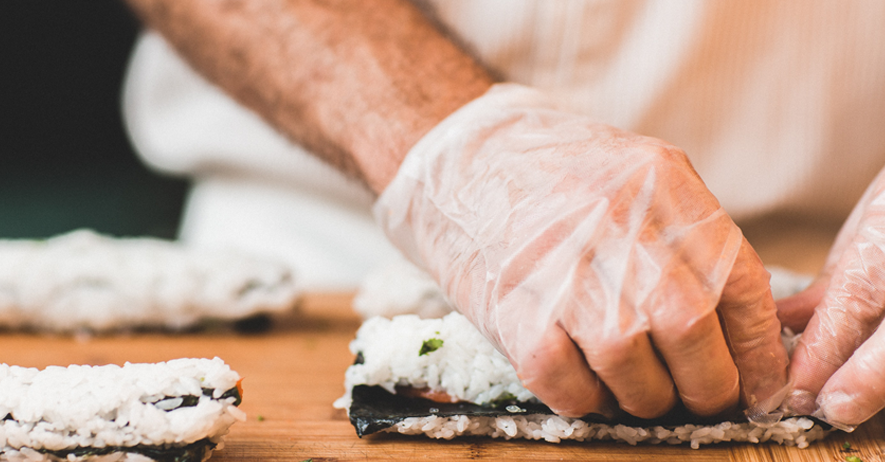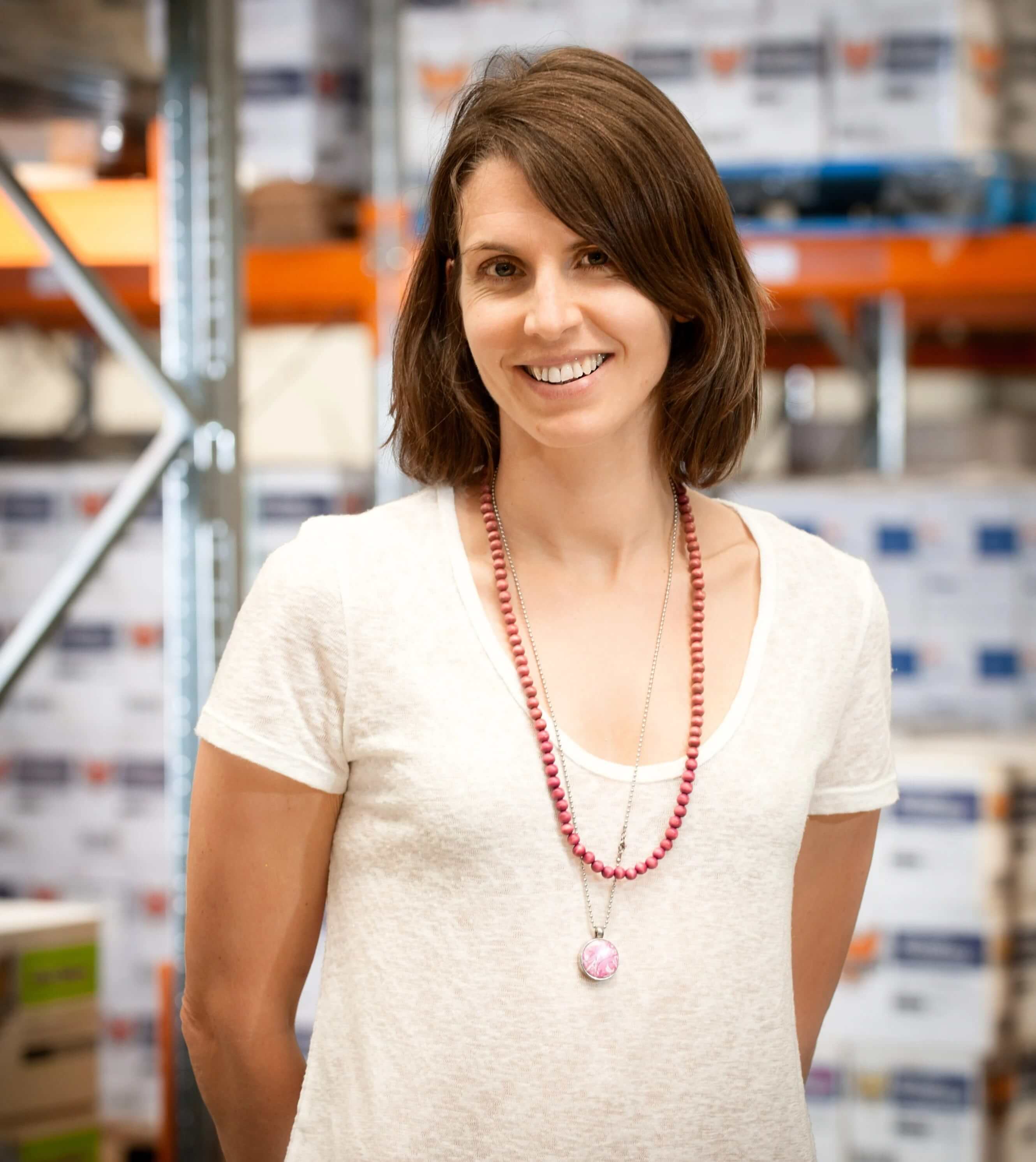
The use of PPE together with excellent hand hygiene has been identified by the CDC as essential in reducing the transmission of COVID-19. Gloves and masks are now being worn by most workers in the food industries. But wearing disposable gloves alone does not necessarily prevent the spread of bacteria and viruses on hands and surfaces. Hand hygiene is necessary, and consideration of the type and quality of glove can help reduce glove associated cross-contamination risks.
Are Vinyl Food Service Gloves Safe?
Gloves that rip easily, or have pinhole failures are an ineffective barrier against virus transmission. How can you tell if your gloves provide effective barrier protection?
- Know the AQL of your gloves. The AQL of a disposable glove is the “Acceptable Quality Level” and refers to a quality standard for measuring pinhole defects, the lower the AQL, the less defects a box of gloves has. There is no AQL requirement for “food service” gloves, meaning there are no guidelines for maximum pinhole defects—no guidelines for the number of failures per box.
In comparison, medical or examination grade gloves must have a maximum AQL of 2.5, requiring gloves be manufactured with no more than 2.5 failures for every 100 gloves produced. Choosing a better quality glove will provide you and your staff with a more effective barrier against virus transmission, with examination gloves recommended by the CDC.
- Know the type of glove you are using. The most commonly used gloves for food handling, vinyl gloves, fit poorly and have limited durability. Because of their rigid structure, studies have shown them to begin leaking as soon as they are put on, increasing the risk of cross-contamination. Additionally, up to 61% of vinyl gloves puncture (fail) during use, increasing bacterial and viral transmission.
Familiarizing yourself with the type of gloves you are wearing or purchasing is essential during the COVID-19 pandemic to reduce to risk of viral transmission, and for future protection of your customers, staff and business. Talk to our experts today, who are ready to help you select the best PPE for your business.
 Written by:
Written by:
Lynda Ronaldson, VP Marketing


